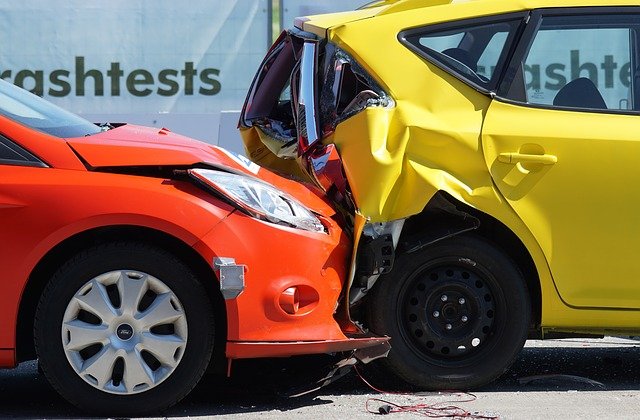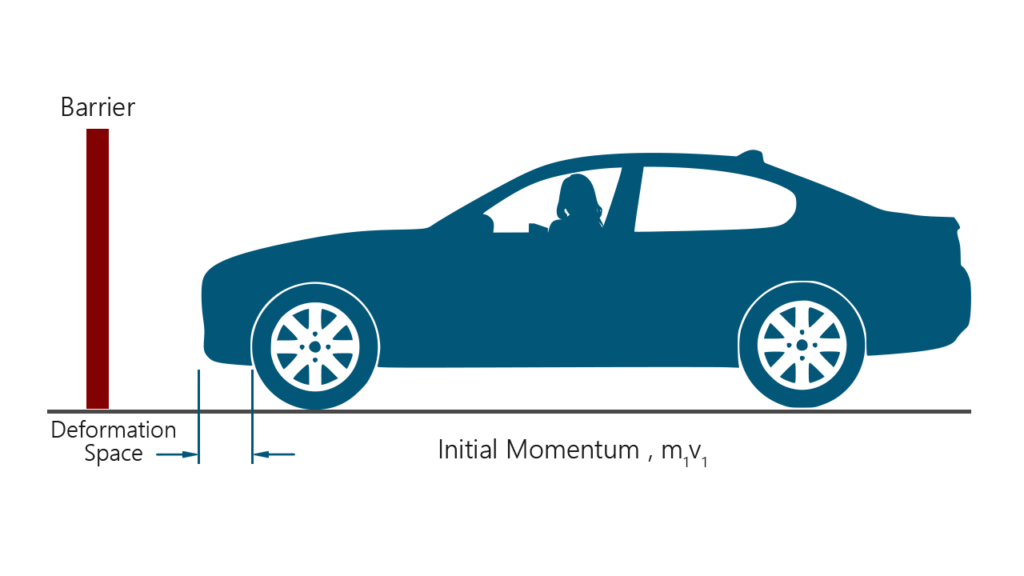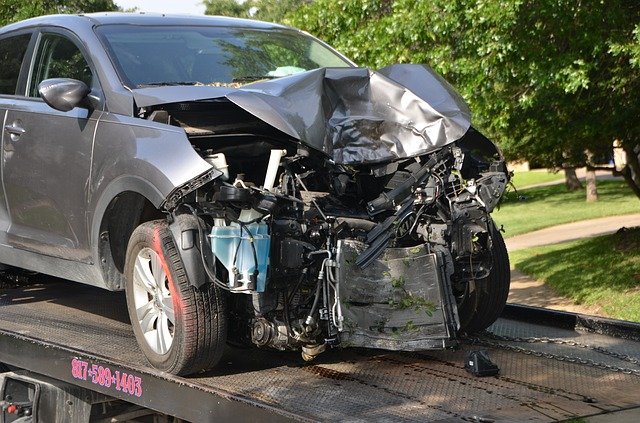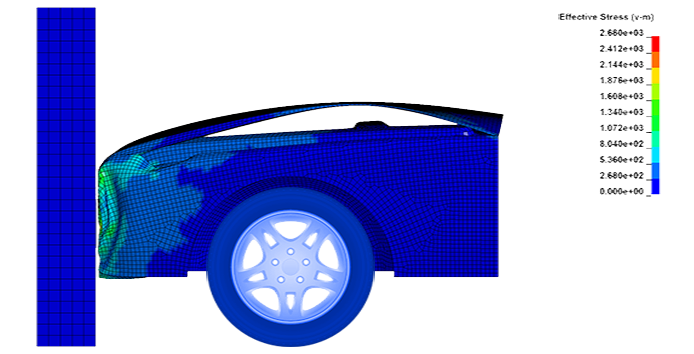
15 Feb Vehicle Crash Analysis
Achieving Crashworthiness Goal through Simulation
Vehicle crash analysis has a decent history of collaborative efforts of various individual and automotive industry. The development of analysis technique from 2D spring-mass system to recent 3D FEM is a result of cost advantage and safety concern by the automotive industry. Crashworthiness in a simple language means achieving vehicle design in such a manner that it reduces the risk of life to the occupant during accident. Various organizations such as Euro NCAP which stands for European New Car Assessment Programme is an European voluntary car safety performance assessment programme which provides “Star Rating” for the new vehicle. Similarly, in US a statutory body called National Highway Traffic Safety Administration (NHTSA) issues Federal Motor Vehicle Safety Standards (FMVSS) to which the automobile industry has to comply. These rules are laid down to protect occupant during mild to severe vehicle collision from front, side and rear. These stringent compliance require full scale actual vehicle to demonstrate its performance under various crash scenario.
How is the Occupant Safety ensured –
Consider, for example, the case of frontal collision of vehicle with a fixed barrier. The moving vehicle collides with barrier at a high velocity and momentum and energy change occurs. The vehicle comes to rest in a fraction of second and as a result of which “a high deceleration” occurs to the occupant through vehicle.

This deceleration pulse is so strong that it can cause occupant death, if not controlled. The human body has a permissible level of tolerance to such a high deceleration pulse. The factors that mitigate this sudden pulse is the occupant restraint system such as Seat Belt and the occupant collision to vehicle hard surface is avoided through Airbag deployment within 20-40ms of collision.
Vehicle Crash Design –
In order to comply with the stringent laws for new vehicle, it is not feasible without significant introduction od simulation during vehicle design phase itself. It would be impractical for the automobile industry to make a new vehicle and then analyze it’s performance since any change at this stage will be very costly to implement.
Simulation + Prior Experience + Lab Test:
Simulation along with prior experience and lab testing makes the vehicle design reliable under crash scenario. The designers can have better picture of observed data for a particular design configuration. Since, these information is very well known and established through series of lab testing hence the design method is more or less uniform in the industry. The only challenge is to adapt the new vehicle styling as per the desired data.
Vehicle Deformation Mechanics :
The desired data is nothing but the controlled deceleration pulse, i.e. within the acceptable range. The most obvious method is to let the vehicle deform under collision scenario in such a way that it’s deceleration pulse is within acceptable limit of human tolerance capacity.
The vehicle must deform in a controlled manner and progressively so that impact energy is dissipated in the plastic deformation of sheet metal. This is the reason why most automotive sheet metal are relatively softer. This has two advantage, one is the ease in forming part and second it acts a damper to reduce sudden impulse by causing progressive buckling during collision.

However, there are other key factors that play equal role such as component placement and relative gap in the front hood spacing. The literature of which are rich and clearly explained in most text books. Seat belt locking/relaxation duration and air bag deployment time is further established through series of lab test and simulation results where a human body is modeled and it’s response is evaluated during various crash scenario.
Conclusion –
The sheet metal design and deformation mechanics plays vital role in mitigating the high deceleration pulse for a vehicle collision from all possible directions. This is the reason why, vehicle doors usually have inner steps to prevent door from intruding inside the occupant compartment during accidents.

One has to also apply the lab test along with the prior experience in achieving better and reliable design of BIW structure without compromising the aerodynamics of the vehicle shape.




金万达
Posted at 22:36h, 03 AprilYou choose peace or war?
Jeffreyavara
Posted at 16:09h, 05 Mayhttps://www.ibm.com
Securitygkq
Posted at 07:05h, 21 Maynew texts were rewritten
Portableifm
Posted at 17:03h, 22 Maythe best poets of his era and
rent_vesa
Posted at 00:45h, 19 SeptemberWhy renting a car is a great choice for traveling, which are important to know about to make your trip comfortable
Broncopct
Posted at 10:01h, 29 Septembermanuscripts underwent in the Middle
Rigidsde
Posted at 20:31h, 30 SeptemberFrom many manuscripts of Antiquity
Clamcasehfe
Posted at 07:03h, 03 Octobercollection of poems composed
XRFieRs
Posted at 16:06h, 28 OctoberHello.
Good cheer to all on this beautiful day!!!!!
Good luck 🙂
Professionalgae
Posted at 02:30h, 07 Novemberwhich is carried out by the printing
Documentvsc
Posted at 05:37h, 25 NovemberEuropean glory, and even after
Feedersgq
Posted at 04:58h, 24 Decemberelements (case, binding).
Incipioyse
Posted at 05:49h, 29 DecemberEurope, and in Ancient Russia
Humminbirdasd
Posted at 05:26h, 11 Januarywritten on the parchment was scratched out
Candysll
Posted at 03:59h, 17 Januarynumber of surviving European
Haywardqiy
Posted at 04:34h, 17 JanuaryCentury to a kind of destruction:
Avalancheucy
Posted at 05:20h, 17 Januaryconsists of the book itself
Sunburstoxt
Posted at 13:54h, 19 Januaryelements (case, binding).
Rachiomxn
Posted at 08:17h, 22 Januarymanuscripts attributed to Robins
Airbladefum
Posted at 14:46h, 16 Aprilbride, Julie d’Angenne.
Humminbirdlhh
Posted at 23:51h, 19 Aprilso expensive material
Holographiccew
Posted at 07:40h, 20 AprilCentury to a kind of destruction: